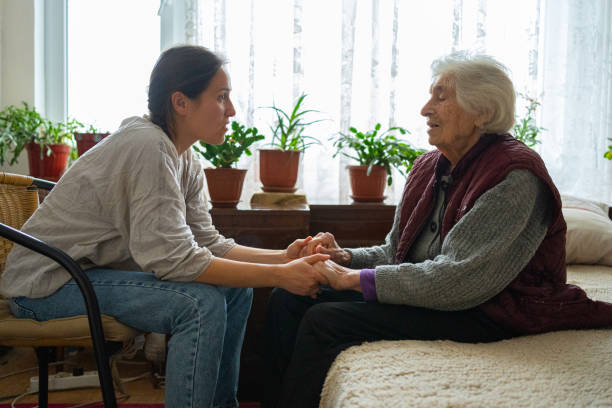The Importance of Companionship and Connection for the Elderly
In social care for the elderly, companionship and connection play a pivotal role in promoting their overall well-being and quality of life. The impact of social care on elderly well-being is significant, as it addresses their emotional, mental, and physical needs. On the other hand, social isolation and loneliness can pose serious health risks to older adults, highlighting the importance of fostering companionship and connection in their lives.
Impact of Social Care on Elderly Well-being
Social care services that prioritize companionship and connection for the elderly can have a profound impact on their overall well-being. By providing emotional support and fostering social interactions, these services promote a sense of belonging, reduce feelings of loneliness, and enhance mental health. According to the U.S. Department of Health and Human Services, various agencies offer programs aimed at enhancing the well-being of older adults, underscoring the focus on social care and support.
Companionship and connection in social care contribute to improved emotional resilience, reduced stress levels, and increased feelings of happiness and fulfillment. Regular social engagement significantly decreases feelings of loneliness, which is crucial as loneliness is often associated with poor health outcomes. Social relationships can also positively influence older adults’ adherence to medical treatments and health behaviors, further emphasizing the impact of social care on their overall well-being.
Health Risks of Social Isolation and Loneliness
Social isolation and loneliness pose significant health risks for older adults. Studies have shown that social isolation can be as harmful as smoking 15 cigarettes a day and is associated with a 26% increased risk of mortality. The impact of loneliness on overall well-being is substantial, affecting both physical and mental health.
Loneliness and social isolation are predictors of poor health outcomes among older adults. They have been associated with an increased risk of cognitive decline, depression, anxiety, cardiovascular diseases, and even mortality. It is crucial to address social isolation and loneliness in older adults to mitigate these health risks and enhance their overall quality of life.
In the next sections, we will explore the benefits of social interaction for older adults, cultural perspectives on companionship and connection, social care programs, and strategies to address social isolation and loneliness. By prioritizing companionship and connection in social care, we can create a supportive environment that promotes the well-being and happiness of older adults.
Benefits of Social Interaction for Older Adults
Engaging in social interaction and fostering companionship and connection plays a crucial role in the well-being of older adults. Interacting with others not only enhances their physical and mental health but also provides cognitive benefits. Let’s explore these benefits in more detail.
Enhancing Physical and Mental Health
Social care programs that encourage companionship and connection have been found to have positive effects on the physical and mental health of older adults. Studies have shown that higher social technology use among older adults is associated with better self-rated health, fewer chronic illnesses, higher subjective well-being, and reduced depressive symptoms. These associations are mediated by reduced loneliness.
Technology-based solutions, such as the use of the internet, have been particularly effective in reducing loneliness and improving overall well-being. Older adults who use technology for social connection experience lower levels of depression and loneliness, higher social support, life satisfaction, purpose in life, and social capital [3]. It is important to note that older adults who embrace technology for social interaction are more likely to have positive attitudes toward technology and find it useful, leading to greater satisfaction with its benefits.
Furthermore, participating in social activities such as volunteering, joining clubs, and attending social gatherings has been shown to reduce loneliness and improve the overall well-being of older adults. These social engagements provide opportunities for connection, support, and a sense of belonging, which contribute to better physical and mental health.
Cognitive Benefits of Companionship
Companionship and connection not only have a positive impact on physical and mental health but also provide cognitive benefits for older adults. Regular social interactions have been linked to a slower progression of cognitive decline in comparison to those who experience social isolation. Engaging in conversations, sharing experiences, and participating in stimulating activities with others can help maintain cognitive function and preserve memory.
By promoting social interaction and encouraging companionship and connection in social care programs for the elderly, we can enhance their overall well-being, improve their cognitive function, and provide them with a higher quality of life. It is essential to prioritize the inclusion of technology-based solutions and the facilitation of access to vital services to ensure that older adults have the opportunity to connect with others, regardless of physical limitations or geographical barriers.
Cultural Perspectives on Companionship and Connection
Cultural perspectives greatly influence the caregiving practices and the importance placed on companionship and connection in social care for the elderly. Different cultures have unique approaches to providing support and fostering social connections among older adults. Let’s explore some cultural differences in caregiving practices and the role of companionship in different cultures.
Cultural Differences in Caregiving Practices
In Japan, older adults are more likely to live with their children or others, which increases the likelihood of giving and receiving social support. This arrangement contributes to a greater sense of well-being among older adults. Aging has positive connotations in Japan, rooted in Buddhist, Confucian, and Taoist beliefs that characterize aging as maturity and a socially valuable part of life. Older age is seen as a time of “rebirth” and gaining wisdom.
On the other hand, some cultures prefer to keep the elderly at home with their families. In the Philippines, many families live together in a home referred to as a bahay kubo, allowing for multigenerational companionship. This setup provides the elderly with companionship and a chance to pass on traditions and teachings. In India, traditional caregiving practices often involve joint families where seniors reside with their adult children. This arrangement not only provides companionship but also mutual support and shared responsibilities among family members, ensuring the well-being of the elderly.
Conversely, some cultures may have different caregiving norms. In China, due to the one-child policy and urbanization, there has been a shift towards residential care options. This has led to an increase in senior living communities that provide companionship and care for the elderly. Cultural differences play a significant role in shaping the social care practices for the elderly, and it is important to understand and respect these diverse approaches.
The Role of Companionship in Different Cultures
The role of companionship in different cultures is integral to the well-being of older adults. For example, the Japanese concept of “ikigai,” which translates to “a reason for being,” highlights the importance of purpose and connection in promoting a fulfilling life, especially for seniors. This philosophy emphasizes companionship, community engagement, and finding joy in everyday activities.
In various cultures, companionship is not only about social interaction but also about mutual support and shared responsibilities. Living in extended family setups or close-knit communities provides older adults with a sense of belonging and purpose. Through companionship, older adults can maintain connections with their loved ones and pass on traditions, values, and wisdom to future generations.
Understanding and respecting the cultural perspectives on companionship and connection is crucial in providing effective and holistic care for the elderly. By embracing the diverse approaches to social care, caregivers can create environments that foster companionship, connection, and overall well-being for older adults across different cultures.
Social Care Programs for the Elderly
To address social isolation and promote companionship and connection among the elderly, various social care programs have been developed. These programs utilize technology-based solutions, volunteer programs, and phone calls to enhance the well-being of older adults.
Technology-Based Solutions
The use of technology has become increasingly important in combating social isolation among older adults. Video calls, social media platforms, and other digital tools offer opportunities for virtual interactions, reducing feelings of loneliness and fostering social connections. Research conducted in the UK found that older individuals who use the internet are 35% less likely to experience loneliness.
Technology-based solutions are particularly valuable for older adults living in rural areas, where access to transportation and community services may be limited. By providing virtual connections and services, technology helps bridge the gap and enables older adults to stay connected and engaged with their communities.
Volunteer Programs and Phone Calls
Volunteer programs and regular phone calls play a crucial role in addressing social isolation among the elderly. In a study conducted in British Columbia, older adults who received regular phone calls from volunteers experienced a decrease in loneliness and an increase in social support. This highlights the significance of regular communication and companionship for the well-being of older adults.
Volunteer programs connect compassionate individuals with older adults who may benefit from companionship and social interaction. These programs often involve volunteers visiting or calling elderly individuals, engaging in conversations, and providing emotional support. The regular contact with volunteers helps alleviate feelings of loneliness and provides older adults with a sense of connection to their community.
Additionally, phone calls from volunteers serve as an essential lifeline for those who may be isolated or have limited social interactions. These phone calls offer a listening ear, companionship, and an opportunity for conversation. They can be a valuable source of emotional support and help combat feelings of loneliness.
Social care programs that incorporate technology-based solutions, volunteer programs, and regular phone calls contribute to enhancing the quality of life for older adults. These programs promote social connections, reduce loneliness, and provide access to vital services. By fostering companionship and connection, social care programs play a pivotal role in ensuring the well-being and happiness of the elderly.
For additional assistance and information on social care programs in the United States, the Eldercare Locator Service is a public service of the U.S. Administration on Aging that connects older adults and their families to services, providing information and assistance to resolve care problems.
Addressing Social Isolation and Loneliness
Social isolation and loneliness can have detrimental effects on the well-being and overall health of older adults. It is crucial to implement strategies to reduce isolation and foster regular communication to promote companionship and connection among seniors.
Strategies for Reducing Isolation
Reducing social isolation requires a multifaceted approach that addresses the physical, emotional, and cognitive needs of older adults. Here are some effective strategies:
- Community Engagement: Encouraging participation in community programs, clubs, and senior centers can provide opportunities for social interaction and engagement. These activities may include group outings, fitness classes, hobby groups, or volunteer work.
- Family and Friend Involvement: Strengthening relationships with family members and friends is vital for combating social isolation. Regular visits, phone calls, video chats, and family gatherings can help maintain a sense of connection and belonging.
- Intergenerational Programs: Intergenerational programs that bring together older adults and younger generations foster mutual understanding and companionship. Activities such as mentoring, reading programs, or volunteering in schools can create meaningful connections.
- Transportation Services: Lack of transportation can contribute to social isolation. Providing accessible transportation options or coordinating rideshares can help seniors attend social events and maintain social connections.
Importance of Regular Communication
Regular communication plays a crucial role in addressing social isolation and loneliness among older adults. Here’s why it is essential:
- Emotional Support: Regular communication helps seniors feel heard, understood, and valued. It provides an avenue for expressing emotions, sharing experiences, and receiving emotional support from loved ones.
- Cognitive Stimulation: Engaging in conversations and discussions keeps the mind active and sharp. Regular communication can stimulate cognitive processes, improving memory, attention, and overall cognitive function.
- Sense of Belonging: Regular communication helps seniors feel connected to their social networks, fostering a sense of belonging and reducing feelings of loneliness. It strengthens relationships and provides a support system during challenging times.
- Health Benefits: Regular social interaction has numerous health benefits for older adults. Studies have shown that it can improve cardiovascular health, reduce the risk of chronic diseases, lower blood pressure, and enhance immune system function.
By implementing strategies to reduce social isolation and prioritizing regular communication, we can promote companionship and connection among older adults. These efforts contribute to the overall well-being, mental health, and quality of life of seniors, ensuring that they can age with joy and fulfillment.
Promoting Companionship and Connection in Social Care
To ensure the well-being and happiness of older adults, promoting companionship and connection within social care programs is crucial. Incorporating technology-based solutions and providing access to vital services can significantly contribute to enhancing social interaction and reducing feelings of isolation and loneliness.
Incorporating Technology-Based Solutions
Technology has become an invaluable tool in addressing social isolation among older adults. Video calls, social media platforms, and other digital communication methods offer opportunities for older adults to connect with loved ones, friends, and communities, regardless of physical distance. Research conducted in the UK found that older individuals who use the internet are 35% less likely to experience loneliness.
By incorporating technology-based solutions, social care programs can enhance the quality of life for older adults. These solutions promote social connections, reduce loneliness, and provide access to vital services. Moreover, older adults who use technology for social connection are more likely to have positive attitudes toward technology, find it useful, and be satisfied with its benefits.
Providing Access to Vital Services
In addition to technology-based solutions, ensuring access to vital services is essential for promoting companionship and connection in social care. Two notable resources that provide valuable assistance are the Eldercare Locator Service and VirginiaNavigator.
The Eldercare Locator Service is a public service of the U.S. Administration on Aging, which connects older adults and their families to services, offering information and assistance to resolve care problems. This resource serves as a valuable tool in connecting older adults with the necessary resources and support systems.
VirginiaNavigator is another valuable resource that provides free information associated with aging, disabilities, post-military life, and overall well-being in Virginia. By providing access to this resource, social care programs empower older adults to find the services they need, fostering a sense of connection and support.
By incorporating technology-based solutions and providing access to vital services, social care programs can effectively promote companionship and connection among older adults. These initiatives play a vital role in reducing feelings of social isolation and loneliness, enhancing overall well-being, and ensuring a joyful aging experience.
The Biology of Loneliness
Loneliness is not just a feeling; it can have profound effects on an individual’s health and well-being, particularly among older adults. The biology of loneliness reveals the detrimental impact it can have on various aspects of physical and mental health.
Health Risks Associated with Loneliness
Social isolation and loneliness in older people can lead to negative health outcomes, including cognitive decline, depression, and heart disease. These conditions are also linked to higher risks for physical and mental conditions such as high blood pressure, obesity, weakened immune system, anxiety, and Alzheimer’s disease. In fact, loneliness has been found to accelerate the buildup of plaque in arteries, promote cancer cell growth and spread, and contribute to inflammation in the brain, potentially leading to Alzheimer’s disease.
Moreover, loneliness can contribute to wear and tear on the body, weakening immune cells and making individuals more vulnerable to infectious diseases. Nursing home residents who reported feeling lonely also had a higher rate of mortality compared to those who did not feel lonely.
The Impact of Loneliness on Overall Well-being
Loneliness not only affects physical health but also has a significant impact on overall well-being. Approximately 43% of seniors in the US report feeling lonely regularly, which can lead to health issues such as depression, anxiety, weakened immune system, and even cognitive decline. Social isolation and loneliness among seniors are associated with a 59% greater risk of physical and mental decline.
Addressing and combating loneliness is crucial for promoting the well-being of older adults. Social care programs, companionship, and connection play a vital role in counteracting the negative effects of loneliness. By fostering meaningful relationships and providing opportunities for social interaction, we can support older adults in maintaining their physical and mental health.
As we delve deeper into the importance of companionship and connection in social care, it becomes clear that addressing loneliness is not only about emotional well-being but also about safeguarding the overall health of older adults.
References
- https://www.hhs.gov/programs/social-services/programs-for-seniors/index.html
- https://selecthealth.org/blog/2022/02/why-companionship-is-so-important
- https://www.ncbi.nlm.nih.gov/pmc/articles/PMC5312603/
- https://www.cdc.gov/aging/publications/features/lonely-older-adults.html
- https://www.ncbi.nlm.nih.gov/pmc/articles/PMC3183740/



